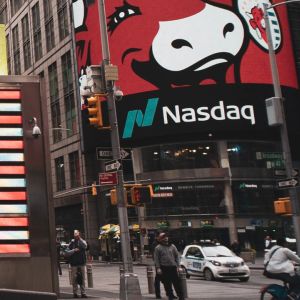
Nasdaq is asking the U.S. Securities and Exchange Commission to allow fully regulated trading of tokenized stocks directly on its exchange, according to a request filed on Monday, that outlines a plan that could embed blockchain inside the core of American equity markets as part of the actual trading infrastructure. If approved, this would be the first time crypto technology directly powers the buying and selling of real, regulated stocks in the U.S. The request includes a proposed rule change that would officially redefine what counts as a “security.” Nasdaq wants the SEC to approve this change so that tokenized shares, digital replicas of real stocks, can be treated the same way as traditional securities. But before anything happens, the SEC must open the plan up for public comment and then make a final ruling. Nasdaq outlines how tokenized stocks would be traded Nasdaq’s filing details exactly how these tokenized assets would work. First, they would be clearly labeled so there’s no confusion for any party involved in clearing and settlement. The Depository Trust Company, which handles that part of the process, would be responsible for executing those trades. These assets wouldn’t be treated like second-class stocks. Nasdaq made it clear that once listed, a tokenized share would have the same execution priority, shareholder rights, and documentation standards as the original security it represents. This isn’t a minor tweak. Nasdaq’s proposal goes into the heart of how the market works: how stocks are created, how they’re traded, and how they settle. That’s a direct shot at Wall Street’s legacy infrastructure, which still relies on slow batch processing and after-hours reconciliation. Nasdaq also flagged a problem that’s been brewing: companies aren’t in control when their shares are tokenized by outsiders. “Tokenizing securities should not occur in a manner that deprives issuers of their ability to determine where and how their shares trade,” Nasdaq wrote. And they admitted that under current rules, the exchange can’t give those issuers the power to approve or reject tokenization. That’s already created friction, like when Robinhood started offering OpenAI tokenized shares. OpenAI quickly said they never signed off on it, and that those tokens didn’t count as real equity. SEC leadership, Wall Street, and legacy firms react This all comes asPaul Atkins, the new SEC chair under President Donald Trump, is pushing the agency to write new rules around crypto assets and clarify when they’re considered securities. SEC Commissioner Hester Peirce said last month, “We are eager to work with tokenization companies,” but warned that they must be fully transparent about what kind of asset is being tokenized. Right now, tokenized stocks are digital representations. They’re not the actual stock certificates. But they’ve been pitched as ways to give foreign investors access to U.S. equities, support fractional investing, and offer 24/7 trading. Unlike traditional markets that close at 4 p.m. and take holidays off, tokenized shares could, in theory, trade around the clock. That’s because they settle almost instantly and cut out middlemen like brokers and clearinghouses. Big asset managers like BlackRock, Franklin Templeton, and KKR have already started experimenting with tokenization, but they’ve been playing it safe. They’re still going through broker-dealers and haven’t gone direct-to-exchange. Nasdaq wants to skip the intermediaries. This filing shows they’re trying to bring crypto-native architecture into Wall Street’s official systems. But skepticism remains. JPMorgan said in a recent note that the industry hasn’t fully embraced tokenized assets yet. Most of the interest is still coming from crypto-first firms, not mainstream banks If you're reading this, you’re already ahead. Stay there with our newsletter .


